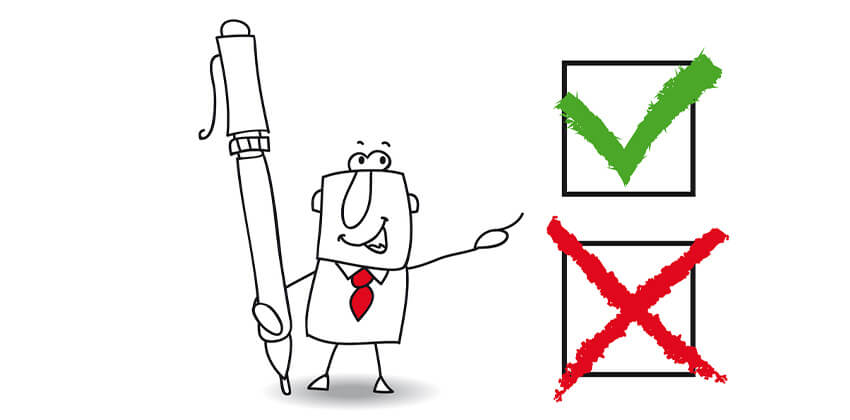
The evidence is overwhelming: a strong, diverse network is key to creating a robust job search and a resilient career.
You probably do realize how much your networking efforts matter. But while the pandemic reminded us of the importance of social interaction, socializing may now feel more challenging than ever as you step tentatively into the changing work environment.
If you’re thinking about refreshing or shifting your career, now is a good time to strengthen your network. But this doesn’t necessarily mean attending more events. You can build deeper relationships, and get more returns from your normal activities, by cultivating habits that allow you to better focus your attention with each routine encounter.
Here are three smart ways to enhance your socializing and make your networking efforts more effective.
1. Become a better listener.
When you launch a new chapter of your work life, a classic starting point is to engage with potentially helpful people. It’s often smart to collect information from folks outside your regular orbit. But whether you are meeting with strangers or old friends, you may get more from each conversation if you improve your listening skills.
By “listening,” I mean that you not only stay quiet long enough for the other person to talk, but you also silence the voice in your head prompting your next comment. Instead of interrupting, you concentrate on what the speaker is saying. You keep refocusing on them in a nonjudgmental way, even if it means you must fight the urge to disagree or become defensive.
Intense listening is a SUPERPOWER!
We humans often go through life aching to have our concerns acknowledged and our presence felt. When you truly listen to another person, you meet that essential need. Deep listening can help you connect with someone in a special way, even if it is not obvious at the time.
Listening is so fundamental to human interaction that you can usually tell if a person is actually hearing you and not merely pretending. Research suggests that speakers can sense whether others in a conversation are paying attention or just waiting for their turn to talk.
And when you really listen, the speaker is more likely to see you as genuine and trustworthy, and even regard you as attractive.
Enhancing your power as a listener is like developing your physical strength. You can build your listening “muscle” by noticing your reactions to a speaker and then putting them aside. For example, let’s imagine your boss says, “You let me down.” You instantly think, “that’s not true!” But you can build your listening chops by choosing to put your defensive thoughts aside and refocusing on what your boss has to say.
Of course, it’s harder to listen when in-person conversations are replaced by endless virtual meetings. Sometimes you can’t see who is speaking, or audio lags mean that people talk over one another.
Even when the technology is working well, your brain tires more quickly during remote meetings because of the need to process confusing visuals or micro-delays in speech patterns. And it can be exhausting to feel like people are staring at you.
The fact that remote meetings may be more challenging does not make listening less important. If anything, your authentic engagement during a video call may set you apart from the pack. These tips can help you listen better, even in remote meetings:
- Get rid of distractions. You will take in more of the conversation, and appear more fully engaged, if you consistently direct your attention to each speaker. So turn off notifications and put away your devices or other distractions. Taking notes can help you concentrate, but consider letting others know what you are doing so they don’t think you are ignoring them.
- Listen with your whole body. Great listening goes beyond hearing what someone says. It means observing body language, facial expressions, and tone of voice. In a brief phone conversation, you may be surprised by how much you can pick up by listening for attitude as well as words. And as you listen closely, you will subtly convey your genuine interest, perhaps with qualities in your voice or expressions, or by mirroring a speaker’s emotions. When people are truly engaged in conversation, the energy rises and there may be a feeling of alignment.
- Try to relax. It’s more difficult to listen when you are tense, worried, or bored. Consider taking a few deep breaths before you start a challenging conversation, or at the point when your attention wanders as a meeting drags on. A good way to trigger active listening is to summon up compassion for each speaker, perhaps by imagining what it’s like to see things from their perspective.
2. Keep records of contacts and networking efforts.
A few people are born networkers, gifted with an endless curiosity and the ability to remember names, faces, and stories. But others with robust networks nurture their circles of connection by keeping track of their social life and the information they collect along the way.
You probably know that LinkedIn is a critical tool. This powerful site allows you to research potential contacts, approach people with whom you have something in common, and stay in touch with old friends. And once the two of you are LinkedIn connections, you can always find reminders of your history with an acquaintance.
But LinkedIn is not enough. Many powerful networkers find it effective to develop their own ways for recording facts, recalling events, and staying in touch with the people they meet. Techniques like these can help you get more from your human interactions:
- Track your activity. When you job hunt or pursue complex projects, you may make more progress if you record key steps. Some people use spreadsheets to note every contact and the outcome of each call or meeting. Others prefer a diary system, briefly noting developments as they evolve throughout the day. A good tracking system is valuable because it allows you to save information that could be useful down the road. Beyond that, maintaining a picture of your work as you go along can highlight potential problems and opportunities, inspire new ideas, and reinforce your sense of accomplishment.
- Record handy personal facts. Your contact list or address book is a good place to capture a few reminders when you meet someone. Many strong networkers not only record the names and contact details of new acquaintances, but also add notes to help them remember each person. When I meet someone I hope to see again, my note might be something like, “Mary’s sister, part-time event planner, met Christmas 2019.”
- Add reminders to your calendar. I know a star networker who adds notes about potential meeting participants directly onto her calendar. She routinely records little personal facts in her address book, like the interests of a colleague’s kids. Then, when she expects to see that person, she may jot the information onto her schedule. This allows her to demonstrate interest by asking a friendly question like, “how is Diego enjoying his new school?”
- Keep lists. Consider creating lists of people with whom you would like to connect, and in various ways. One list might consist of casual friends—people you like but seldom see. When we are busy, we tend to speak with the same few people frequently but lose track of others. A casual friends list can remind you to initiate contact with a broader circle, and some of these folks may help you discover ideas and opportunities.
- Keep a “names” list. I enjoy greeting people by name, and sometimes it can make a transaction go more smoothly. To help me build my memory bank, I keep an accessible list of the first names of people I meet casually during my normal routines, like schedulers, assistants, and other gatekeepers or service providers.
Regardless of what techniques you choose, creating records and reminders makes it easier to track and stay connected with people you know, even slightly. Beyond that, a tracking habit can help you focus more intensely on other people, nudging you to actively listen and fully engage in each conversation.
More: 6 Simple Ways to Keep Your Network Alive
3. Refresh Your Personal Style
During the pandemic, it felt like we might never get out of our sweats again. And now many of us still enjoy wearing soft fabrics, as well as loose-fitting pajama styles that comfortably adapt to an extra bit of COVID weight.
But if you’re interested in cultivating a more robust career, I urge you to resist the urge to spend your entire life in low-grade leisurewear.
Jordan Stolch, Founder of the Los Angeles firm MiKADO Personal Styling, says the way you shape your look still matters at work, even when colleagues see you only on a screen.
At least unconsciously, people make assumptions about you based on your wardrobe and grooming. And research says that the appearance of women is judged particularly harshly.
It’s not fair and it’s not right, and I understand why you may choose to ignore how people assess your personal style. But curating your appearance is one option that is within your control, so why not make an effort and perhaps get more from your social interactions?
Pumping up the way you dress doesn’t mean you have to be a fashionista. Jordan says, “Using style to our strategic advantage is about being aware of what we’re communicating, consciously and unconsciously, through our fashion choices.”
“When you show you’ve put the necessary care and attention into your image, people subconsciously associate that same care and attention with your work as well,” Jordan says. “Furthermore, when you invest energy into yourself, and focus on things like dressing well, you raise your own bar by setting higher expectations and accepting greater challenges.”
Even when you are on a routine Zoom call with colleagues, making a little effort about your look quietly sends a message that you care. And when you tweak your look for a client meeting, you subtly suggest that you are energetic, enthusiastic, and ready to work.
Perhaps what matters most is how your styling choices make you feel. Jordan says, “when we wear clothes we feel good in, our confidence is lifted, and ultimately, our success increases.”
Putting together a powerful look is about making mindful choices. Here are more tips from Jordan on style choices that serve you well:
- Be authentic. The clothing you wear is an extension of who you are. It should strengthen your image and yet express your true self, so don’t force it. Select outfits that are comfortable, that look like you, and that make you happy.
- Do some research. Studying the accomplishments of those who’ve already mastered a skill is a good place to start learning anything. So when you want to upgrade your style, notice people around you and look for inspiration from those who exude the kind of energy you admire. Identify coworkers, TV personalities, or others who strike you as consistently put together. Create a collection of images that reflect your sense of style. Pinterest.com is one handy platform for saving and organizing photos.
- Sort out your closet. Becoming clear about how you want to appear will help you assess your wardrobe with honesty and objectivity. Sometimes upgrading your appearance is mostly a matter of editing. Give away items that don’t fit, need repair, or no longer support the image you hope to cultivate.
- Invest what you can afford in good basics. People with great style tend to spend a little extra money on key wardrobe essentials. Concentrate your budget on fundamentals, like high-quality denim, well-fitting pants, or clean white shirts.
- Look professional on-screen. Comfortable, casual work clothes are here to stay, particularly for remote work. But you won’t seem organized and focused on your tasks if it looks like you just rolled out of bed. It’s smart to suggest that you gave a little thought to grooming. And for important meetings, like job interviews, you can show you care by dressing a bit more formally than usual.
Being mindful about the things you can control, like your personal style, can help you feel confident and relaxed around other people. And when you are calm and centered, it’s easier to focus your attention on others, and your interactions are more likely to be positive and productive.
The Bottom Line:
Connecting more effectively with people you routinely encounter is one key to creating a network that powers your job search and enhances your whole career. And you can enjoy a better return on your efforts by cultivating smart habits and fully engaging in your social encounters. People will take you as seriously as you take yourself. Magnify the impact of your networking efforts by listening intently in conversations, keeping track of your outreach efforts, and choosing a personal style that helps you feel confident and organized.
 About the author…
About the author…
Beverly E. Jones is a Job-Hunt Networking Contributor. Bev is an executive coach, and a former lawyer and corporate executive. In addition, she is an active writer and speaker, and her new book is “Find Your Happy at Work.” Her career podcast, “Jazzed About Work,” appears on NPR.org. Visit her website, Clearways Consulting, and Find Bev on LinkedIn, Twitter, and Facebook.
More about this author…
Don't forget to share this article with friends!




